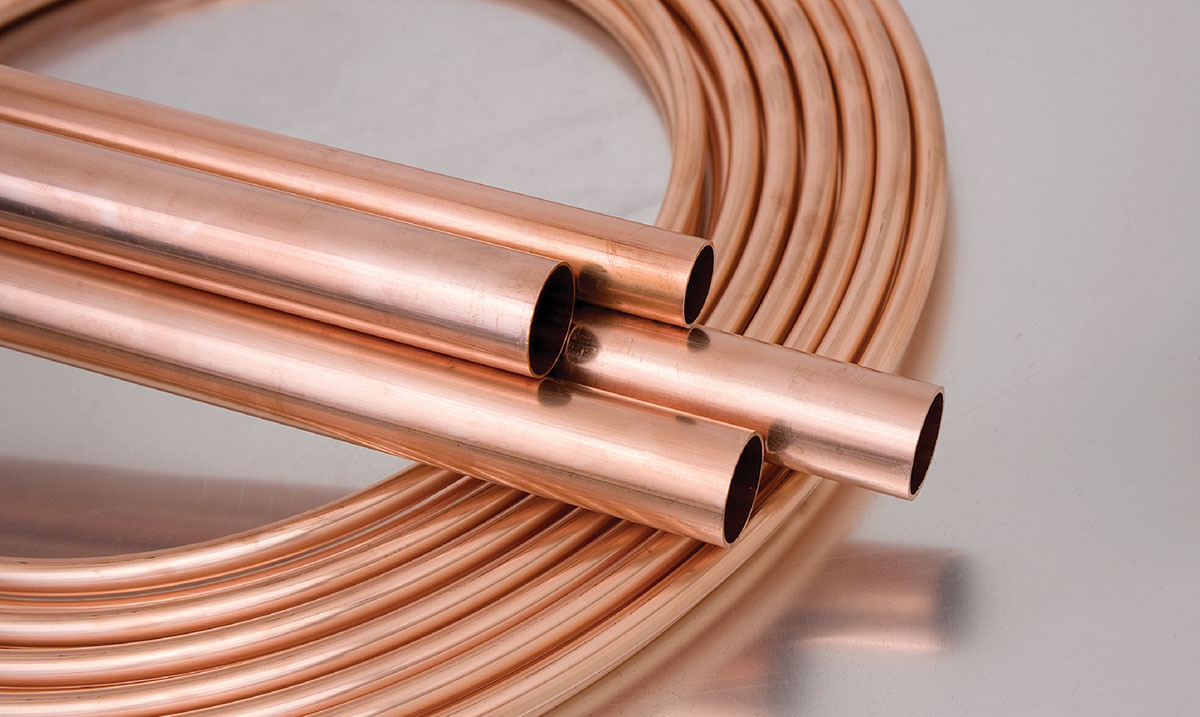The Ultimate Overview to Lasting Coping With Eco-Friendly Copper Products
The Ultimate Overview to Lasting Coping With Eco-Friendly Copper Products
Blog Article
Checking Out the Diverse Applications of Copper Products in Modern Industries
From boosting the effectiveness of electrical systems to playing an important role in sustainable power modern technologies, the adaptability of copper is noticeable. As markets progressively focus on innovation and sustainability, the diverse applications of copper warrant a closer assessment, especially regarding their possible influence on future technical improvements and ecological techniques.
Electric Applications of Copper
Copper is a necessary material in the electric industry, making up around 60% of the overall demand for non-ferrous steels worldwide - Copper Products. Its premium electric conductivity, which is virtually two times that of light weight aluminum, makes it the recommended selection for a vast array of electrical applications. From electrical wiring systems in household and commercial buildings to high-voltage power transmission lines, copper guarantees efficiency and integrity in electrical power shipment
In enhancement to circuitry, copper is important to the manufacturing of electric components such as transformers, motors, and generators. These components utilize copper's thermal conductivity and malleability, crucial for heat dissipation and efficient efficiency. Furthermore, copper's resistance to deterioration boosts the lifespan and durability of electrical systems, making it a cost-effective service in the long-term.
The growth of renewable resource sources, such as solar and wind power, has even more boosted the demand for copper in electric applications. As industries change towards lasting power services, copper's function ends up being a lot more essential. Generally, the adaptability and efficiency qualities of copper solidify its status as a cornerstone product within the electric industry, driving advancement and performance throughout various applications.
Pipes and Piping Solutions
In modern-day plumbing systems, the option of products considerably affects both performance and durability. Copper has actually become a favored option as a result of its one-of-a-kind homes, including corrosion resistance and antimicrobial characteristics. These attributes make certain that copper piping stays secure and durable for delivering safe and clean water, a critical consideration in property and business applications.
One of the vital benefits of copper in plumbing is its capability to withstand heats and stress, making it ideal for a variety of applications, from warm water systems to home heating and cooling networks. Furthermore, copper's adaptability enables easier installment in intricate piping formats, reducing the risk of leakages and failures.
One more noteworthy benefit is copper's lengthy life expectancy, commonly surpassing 50 years with appropriate maintenance. This durability not only decreases replacement prices but likewise adds to lasting practices by lowering waste. Furthermore, copper's recyclability straightens with modern-day environmental standards, advertising a circular economic climate within the pipes sector.
Copper in Renewable Resource
The flexibility of copper prolongs past pipes applications, playing a crucial role in the eco-friendly energy sector. In solar panels, Your Domain Name copper is utilized in solar cells and electrical wiring, facilitating efficient power conversion and transmission.

Furthermore, as the global demand for electric automobiles (EVs) increases, copper's role in battery systems and billing infrastructure comes to be much more substantial. The product's capacity to perform electrical energy successfully is indispensable to the performance of EV batteries, enhancing range and billing rate.
Copper's Duty in Electronics
Electronics manufacturing relies heavily on copper's phenomenal residential properties, especially its high electric conductivity and thermal efficiency. These features make copper an excellent selection for a wide variety of digital components, including adapters, circuit card, and electrical wiring. The metal's capacity to efficiently transfer electrical signals ensures very little energy loss, which is critical in high-performance electronic tools.
Additionally, copper's thermal conductivity plays a significant function in warmth dissipation, protecting delicate components from overheating. This is particularly essential in modern-day electronics, where portable layouts bring about boosted warmth generation. Copper is likewise favored for its malleability and ductility, enabling it to be quickly formed right into intricate styles that meet read review the demands of innovative electronic applications.
With the surge of consumer electronics, telecommunications, and electrical lorries, the demand for copper in the electronics industry continues to expand. Therefore, copper remains a keystone product in the ever-expanding area of electronic devices.
Innovative Makes Use Of in Manufacturing

One remarkable application is in additive production, where copper-based materials are employed in 3D printing procedures. This enables the creation of complicated geometries and light-weight components, especially in the aerospace and automobile industries. In addition, copper's thermal conductivity makes it an excellent selection for warmth exchangers, boosting effectiveness in industrial air conditioning systems.
Moreover, the increase of wise production has actually seen the incorporation of copper in IoT devices, where its conductive capabilities sustain sophisticated sensing modern technologies. In the realm of renewable resource, copper is pivotal in the production of solar panels and wind generators, promoting a lot more reliable energy conversion and circulation.
As sectors pursue sustainability and advancement, copper's versatility and efficiency proceed to place it as an essential material, driving innovations in manufacturing and adding to the advancement of smarter, a lot more efficient items.
Final Thought
The indispensable role of copper in sustainable energy and its vital function in electronic devices underscore its relevance in progressing sustainable practices. Jointly, these applications highlight copper's essential payment to technical development and commercial efficiency in contemporary society.
From boosting the performance of electrical systems to site here playing a crucial role in renewable power innovations, the flexibility of copper is apparent. As industries significantly focus on development and sustainability, the diverse applications of copper call for a closer evaluation, particularly concerning their prospective impact on future environmental practices and technological improvements.
The growth of sustainable power resources, such as solar and wind power, has further increased the demand for copper in electric applications. Generally, the adaptability and efficiency qualities of copper solidify its condition as a keystone material within the electrical sector, driving technology and performance across various applications.
The convenience of copper prolongs beyond plumbing applications, playing an essential function in the eco-friendly power field.
Report this page